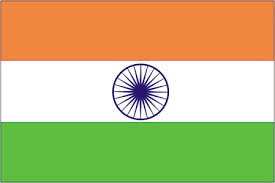Statement by Ambassador (Dr.) Pankaj Sharma, Permanent Representative of India to the Conference on Disarmament, Geneva during the thematic debate on other WMD of the First Committee of the United Nations General Assembly on October 22, 2019
Mr. Chairman,
The risk of weapons of mass destruction falling into the hands of terrorists presents a grave security challenge to the international community. India is committed to supporting international efforts to prevent non-State actors and terrorists from acquiring WMDs and their means of delivery. This commitment is enshrined in Indian domestic law through the enactment of the Weapons of Mass Destruction Act of 2005. We have in place a robust and effective export control system. India’s resolution entitled "Measures to prevent terrorists from acquiring weapons of mass destruction", first adopted in 2002, has continued to command consensus and growing support both in the First Committee and the General Assembly. The resolution gives expression to the concerns of the international community while underlining that the international response to this serious threat needs to be not only national but also multilateral and global. As in previous years, we are introducing this draft resolution this year as well and we hope that it will continue to elicit strong support from all Member States.
Mr. Chairman, the CWC is a unique disarmament treaty providing for the elimination of an entire category of weapons of mass destruction through a multilaterally negotiated, non-discriminatory and internationally verifiable instrument. India, today, has the second largest number of declared chemical facilities, receives among the largest number of industry inspections from the OPCW and has a flawless track record of verification inspections.
In order to achieve the object and purpose of the CWC, it is important to address the new challenges that are emerging in an ever-changing global environment. In this regard, my delegation shares the concern over allegations and incidents of use of chemical weapons, including by non-state actors, especially terrorist groups, in different parts of the world. Any use of chemical weapons is in complete disregard of humanity, and is reprehensible and contrary to the provisions of the Convention, as well as accepted international legal norms. States Parties should strongly resolve to undertake appropriate measures to combat use or threat of use of chemical weapons by non-state actors. India has maintained that all investigations of alleged use of chemical weapons should be conducted strictly in accordance with the provisions of the Convention.
Mr. Chairman, India attaches high importance to the BWC as the first disarmament treaty banning an entire class of weapons of mass destruction. We continue to place importance on the universalisation of the BWC. Significant strides have been made towards this goal in the recent past, with the total number of States Parties now at a noteworthy number of 183. India is committed to improving the effectiveness of the BWC and strengthening its implementation. The lack of a comprehensive Protocol to strengthen implementation of all aspects of the BWC has created a gap in the effective implementation of the BWC. While recognizing that there is no consensus on commencing negotiations for a legally binding Protocol at present, India strongly believes that the long-term sustainability of the Convention should be rooted in legally binding measures with States Parties endowing collective confidence in the Convention.
We are pleased with the robust discussions held on a range of issues under the Meetings of Experts this year, in which the Indian delegation participated in an active and constructive manner. We believe that the inter-sessional process, as established by the 2017 MSP under India’s chairmanship, has made a significant contribution towards strengthening the Convention. We hope that the substantive work conducted during the inter-sessional period will lay the foundation for a successful outcome at the 9th Review Conference in 2O2I.
Thank you, Mr. Chairman.












